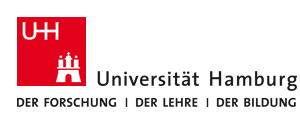 |
Gesellschaft für wissenschaftliche Datenverarbeitung mbH Göttingen The GWDG is a joint facility of the Georg-August-Universität Göttingen and the Max Planck Society. It functions as the data and IT competence center for the Max Planck Society, and as the data center for the university. Particularly, tasks include the operation of high-performance computers and as an IT competence center, the GWDG advises and supports all associated institutes concerning all questions on scientific data processing. |
 |
Leibniz Universität Hannover
The Computational Health Informatics (CHI) Section is led by Prof. Dr.-Ing. Gabriele von Voigt, and is part of the Institute of Distributed Systems in the Faculty of Electrical Engineering and Computer Science, at Leibniz Universität Hannover. In addition to long term support on Tier-2 and Tier-3 systems since 2002, the research group has been active in a range of complex Distributed Systems such as management of complex e-Infrastructures (within e-IRGSP5 and eInfraCentral projects), Grid Computing, High Performance Computing (topics including performance engineering, benchmarking, and energy efficiency), as well as IT Security and Homomorphic Cryptography. |
 |
Universität Hamburg The HPC group at Regional Computing Center at Universität Hamburg (RRZ) offers consulting for scientific projects that have large compute demands, operates HPC systems (426 compute nodes, 2.1 PByte of disk storage) and supports users in accessing the sytems of the North-German Supercomputing Alliance (HLRN). |
 |
Zuse Institute Berlin
The Zuse Institute Berlin (ZIB) is an interdisciplinary research institute for applied mathematics and data-intensive high-performance computing. Within the HLRN, ZIB operates as a service for science and research in the northern German area a Tier-2 supercomputer system, currently the HLRN-III complex “Konrad”, a Cray XC30/40 system with 1872 nodes. |
 |
Universität Rostock The chair of Modeling and Simulation (LEMOS) deals with the development and improvement of numerical methods and models applied in different engineering fields. As these methods are often used to solve coupled transport problems involving high performance computing (HPC) systems, performance analysis and tuning becomes more and more important for reaching the best possible utilization of available computer resources. Therefore, LEMOS intends to use the information gained from the performance analysis to ensure best efficiency of the developed methods and models on modern HPC systems. |
